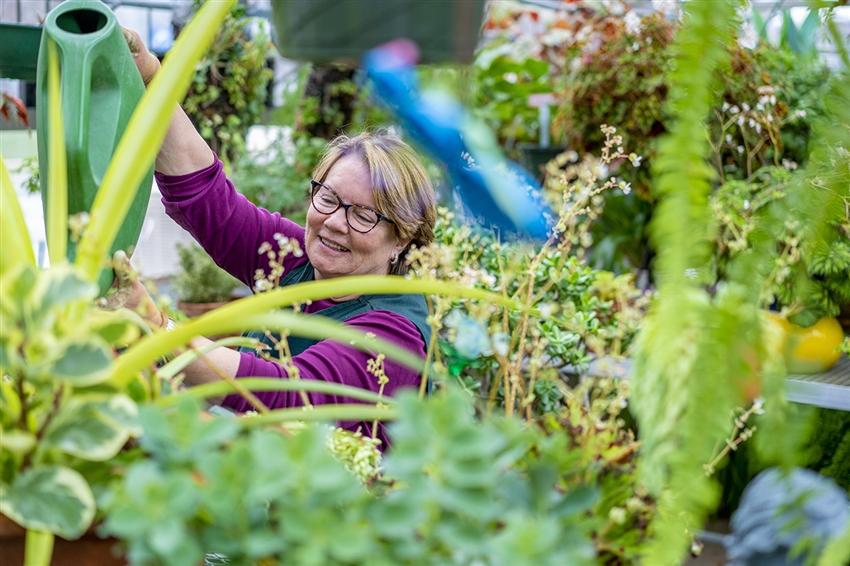Your therapy team will also include physical, occupational, recreational and speech therapists who will help you work toward your therapy goals while enjoying practical activities in a group setting or individually. Working with plants, you can improve mobility, coordination, balance, endurance, memory and socialization skills in a natural, therapeutic setting.
The horticulture therapy program benefits a wide range of people, from those managing a lifelong disability to those recovering from a serious injury. People of all ages can easily participate in greenhouse activities, naturally improving physical and social skills. Our specially designed greenhouse includes extra wide aisles and non-skid floors to accommodate those in wheelchairs. In horticultural therapy, patients share a meaningful activity with others in an effective, creative and flexible treatment platform.
